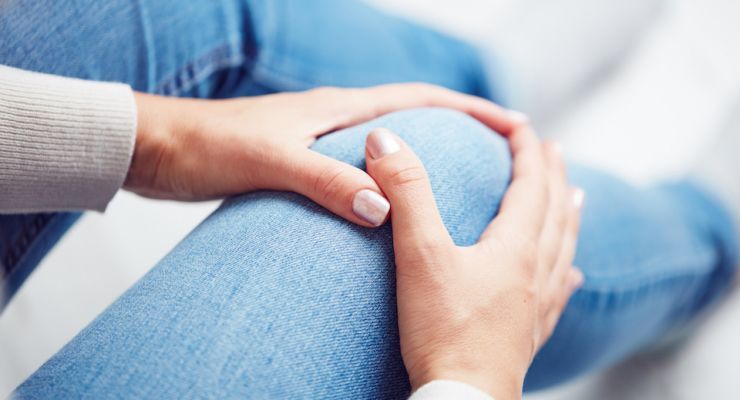Contrary to what your mom told you when you were a kid, cracking your joints doesn’t cause arthritis, nor is it an early sign of arthritis But what exactly causes this sound? Is it dangerous at all, and how can you look after your joints to keep them as healthy as possible? Read on to find out.
Why do joints crack?
Whether you intentionally crack your knuckles, or your neck simply pops when you turn to look at something, joint cracking is usually totally harmless. Experts believe that the popping sound comes from tendons or muscles moving over the joint. Another popular theory is that the cracking is caused when nitrogen bubbles in the joint space are popped due to movement. These nitrogen bubbles form in the synovial fluid that lubricates your joints to protect them from wear and help preserve cartilage. Naturally, it takes some time for the bubbles to build back up again, which is why you can’t crack a joint again right away.
Keep in mind, the exact cause of this unique sound has not been definitively proven. However, it is agreed that it is not harmful in the majority of cases. There have been a few isolated notes of dislocations or tendon injuries from overly vigorous knuckle cracking, but these cases are very rare.
It can be annoying
If you are forced to socialize with someone who finds it entertaining to crack their joints incessantly, you may have helped spread the rumor that it could be detrimental by telling them that they would get arthritis. And who can blame you, really? Many people find the sound of popping joints uncomfortable and annoying. Therefore, if you find the action satisfying, it may be best to avoid doing it around people who don’t appreciate it as you do.
When is it harmful?
While normal, everyday knuckle or back cracks may be a source of relief for you (and potentially a source of irritation for your coworkers) and prove a fun, harmless pastime, other types of cracks could actually be a red flag. When cracking your joints is associated with pain, you likely have a new or preexisting condition or injury that is aggravated by the excessive movement.
Any time you experience pain, discomfort, or another unusual sensation when cracking a joint, cease immediately and keep an eye out for continued pain, swelling or discoloration. If any of these occur, schedule an appointment with your doctor.
How to prevent joint cracking
If you don’t love the creaky sound that your body makes when you stand up from your chair, or experience stiffness once you’ve been sitting for a while, you may want to prioritize stretching and movement to help loosen your joints. Try to stand for at least a few minutes every hour and walk around a little bit, if possible. Reach to the sky and then bend down to touch your toes. Incorporate other stretches, and you can even throw in some jumping jacks to get your heart pumping and increase blood flow. These simple activities could reduce joint stiffness, cracking, and improve your overall health.
Other ways to look after your joints:
Gentle exercise
Swimming, walking, tai chi, yoga, and biking are all excellent low-impact exercises that can keep joints loose and limber. They are even great if you have arthritis, other joint pain, or have experienced a recent joint-related injury. Plus, extra weight increases the pressure on your joints, which means that losing a few pounds will help protect your joints.
Change your diet
It is a well-known fact that your diet contributes to inflammation, and inflammation causes pain. Therefore, filling your diet with anti-inflammatory foods and cutting out those that contribute to this issue seems like an incredibly logical step towards reducing joint pain and improving mobility. Ditch processed foods full of chemicals and sugar and eat real, whole fruits, veggies, lean proteins, and healthy grains.
Pay attention to your body
One of the best things you can do for your body is listen to it. If you are tired, go to sleep. If you are thirsty, drink a big glass of water. And if your joints are hurting, stop what you are doing and rest. Don’t overdo potentially harmful activities and avoid pushing yourself past your comfort zone, as this can lead to injury and permanent damage. But go ahead and crack your joints! It can’t hurt you.
Do you crack your joints? Let us know in the comments below!
-Susan Patterson

